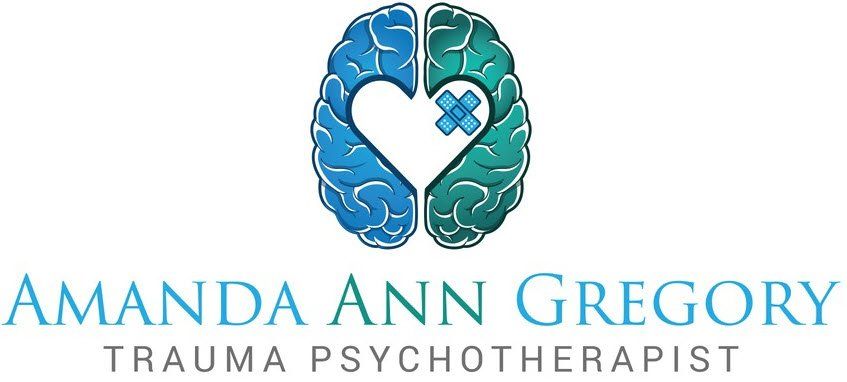Blog Layout
The Vagus Nerve and PTSD
The vagus nerve has received a lot of attention from the psychology and medical research communities. This is because this nerve may play an integral part in treating physical and psychological illnesses in the future. In fact, there is preliminary evidence that stimulation of the vagus nerve may help treat depression, posttraumatic stress disorder (PTSD), and inflammatory bowel disease (Breit, 2018). Trauma researchers have focused on the vagus nerve as a way to better understand trauma responses in the body in order to develop further ways to manage or diminish such responses in those who experience PTSD.
What is the vagus nerve?
The vagus nerve is long. In fact, it’s the longest of the cranial nerves and is the main part of your parasympathetic nervous system (PNS). Picture a network of strong roots (such as the roots of a plant) that start in your brain stem and travel all the way down to your colon. Along the way, these roots are connected to every organ in your body. The vagus nerve is no doubt a highly influential and powerful nerve, as it impacts many of your autonomic bodily functions, such as digestion, breathing, reducing inflammation, and calming your mood and body.
Researchers have found that vagus nerve stimulation could be a therapeutic option in treating anxiety disorders such as PTSD. The vagus nerve can directly impact the amygdala and hypothalamus – two parts of the brain which are heavily impacted by PTSD (Breit, 2018). Consider this: There is a nerve in your body that can help to calm you. A nerve that you can focus on when you’re feeling anxious, stressed, or are experincing a trauma response. A nerve that might be able to help you manage symptoms caused by PTSD. Would you use this nerve to your advantage? If so, you might want to try these interventions.
Decreasing Stigma
Social and cultural stigmas pertaining to mental illness continue to exist. Such stigmas can make it difficult to seek treatment and support for PTSD, and they can also lead to feelings of shame. The vagus nerve can help you understand and accept that PTSD is an actual physiological illness that causes changes in the body. For example, PTSD causes physical abnormalities in the hippocampus and amygdala, changes that impact the vagus nerve. If you struggle with stigma, consider this: Cancer causes physical changes in the body that can negatively impact a person’s behavior and mood. Would you blame someone for developing cancer? Would you tell them, “It’s all in your head.” If not, perhaps you can apply the same logic to PTSD.
Improving Gut Health
Your digestion system, or gut, is composed of an ecosystem of bacteria. When this ecosystem is out of balance it can cause inflammation, which can increase anxiety and symptoms of PTSD. Think of it this way: your gut has a direct phone line to your brain, and that line is your vagus nerve. Some people refer to this close relationship as your “belly brain.” You might be able to diminish or manage symptoms of PTSD by improving your gut health. Consider decreasing your sugar intake, identify and decrease exposure to food intolerances, and work with a doctor or nutritionist if needed.
Practicing Yoga
Many people who experience PTSD have benefits from practicing yoga without knowing why. The vagus nerve could be one explanation. Research has produced evidence that practicing yoga can reduce or help people manage PTSD symptoms (Breit, 2018). Yoga can temper amygdala hyperactivity, which can cause PTSD symptoms. If you haven’t tried yoga, you might want to give it a try.
Get your Free eBook: 25 Anxiety & Trauma Coping Hacks
Amanda Ann Gregory is a trauma psychotherapist, national speaker, and author who provides specialize speaking engagements for conferences, companies, and communities. Schedule a speaking engagement
and follow on Instagram,
Facebook,
or YouTube.
Schwartz, A. (2019). The vagus nerve in trauma recovery. Blog post. https://drarielleschwartz.com/the-vagus-nerve-in-trauma-recovery-dr-arielle-schwartz/#.YOoBkD2SlPY
Breit, S., Kupferberg, A., Rogler, G., & Hasler, G. (2018). Vagus nerve as Modulator of the brain-gut axis in psychiatric and inflammatory disorders. Front Psychiatry, 9(44) https://www.ncbi.nlm.nih.gov/pmc/articles/PMC5859128/
Gregory, A (2021). How Can My Vagus Nerve Treat PTSD? Symmetry Counseling blog. Retrieved from blog https://www.symmetrycounseling.com/therapy-chicago/how-can-my-vagus-nerve-treat-ptsd/

By Amanda Ann Gregory
•
20 Apr, 2024
Christianity has never been the prescribed religion of the US. To state that the US is a Christian nation overlooks the rich diversity of religious beliefs and practices that exist and are celebrated in the country. These are six ways in which Christian privilege manifests in the US,
© 2024
All Rights Reserved | Amanda Ann Gregory, LCPC
Design & Consultation by Teresa Lauer, LMHC, GrowYourTherapyPractice.com *

